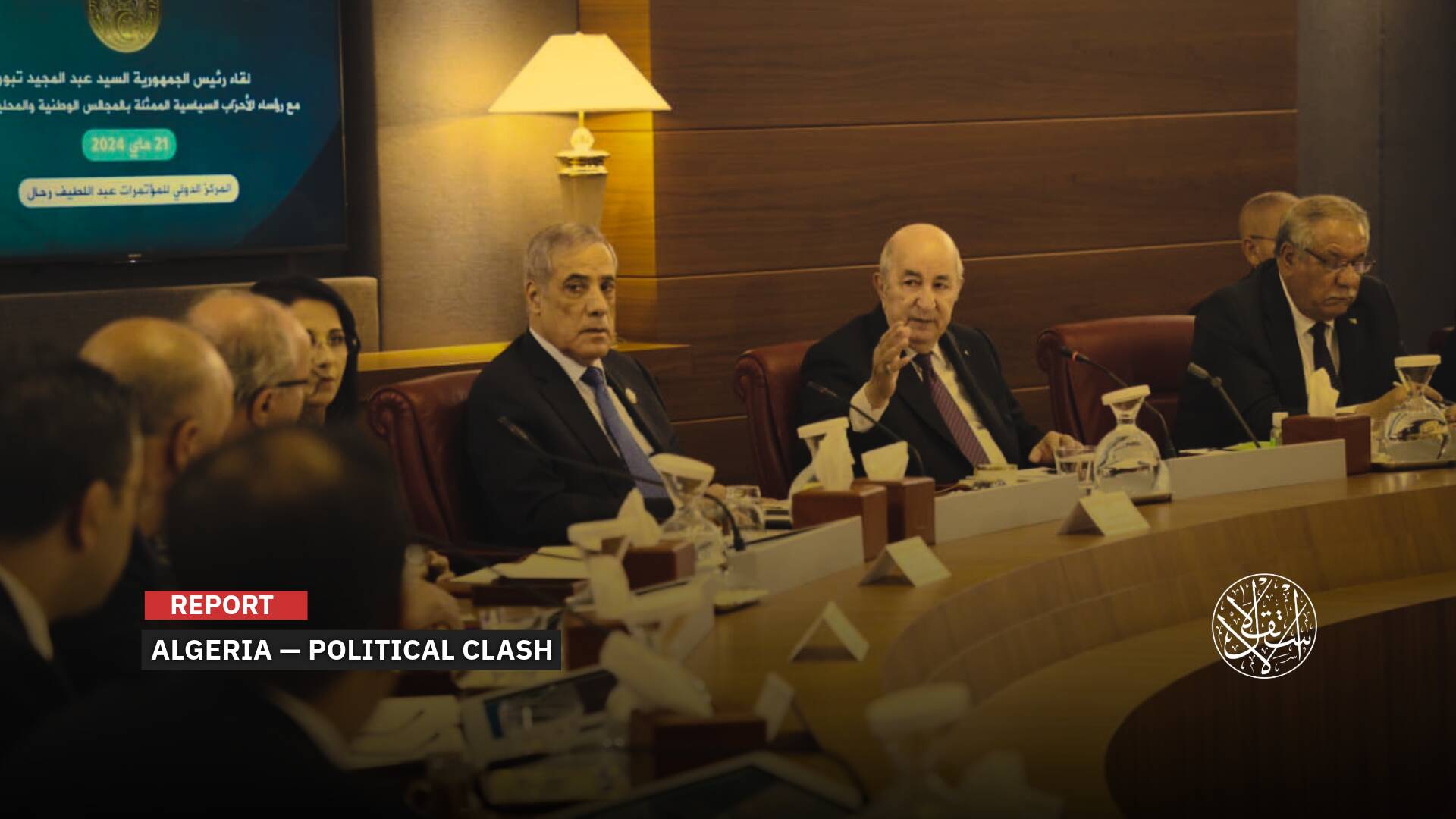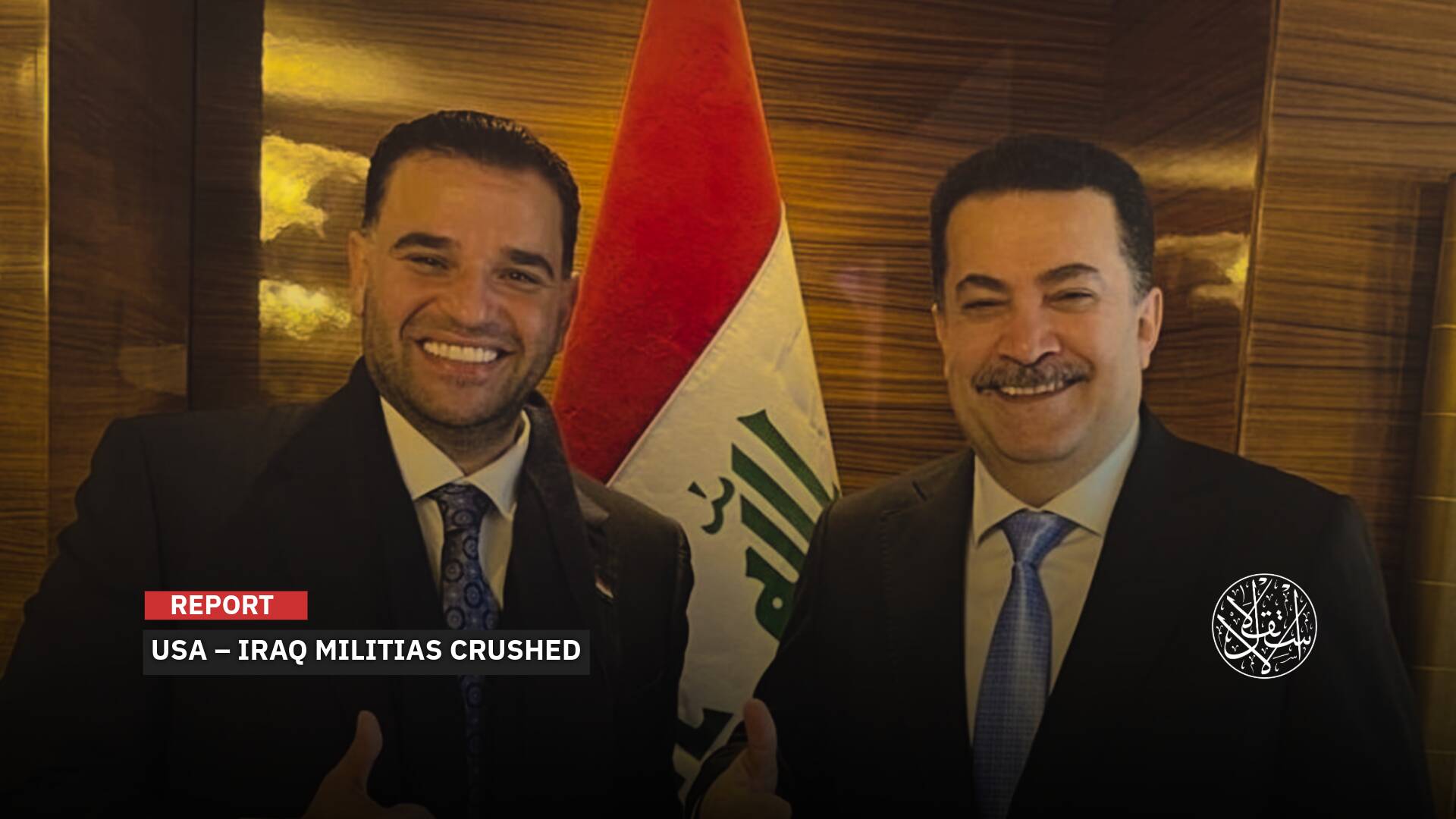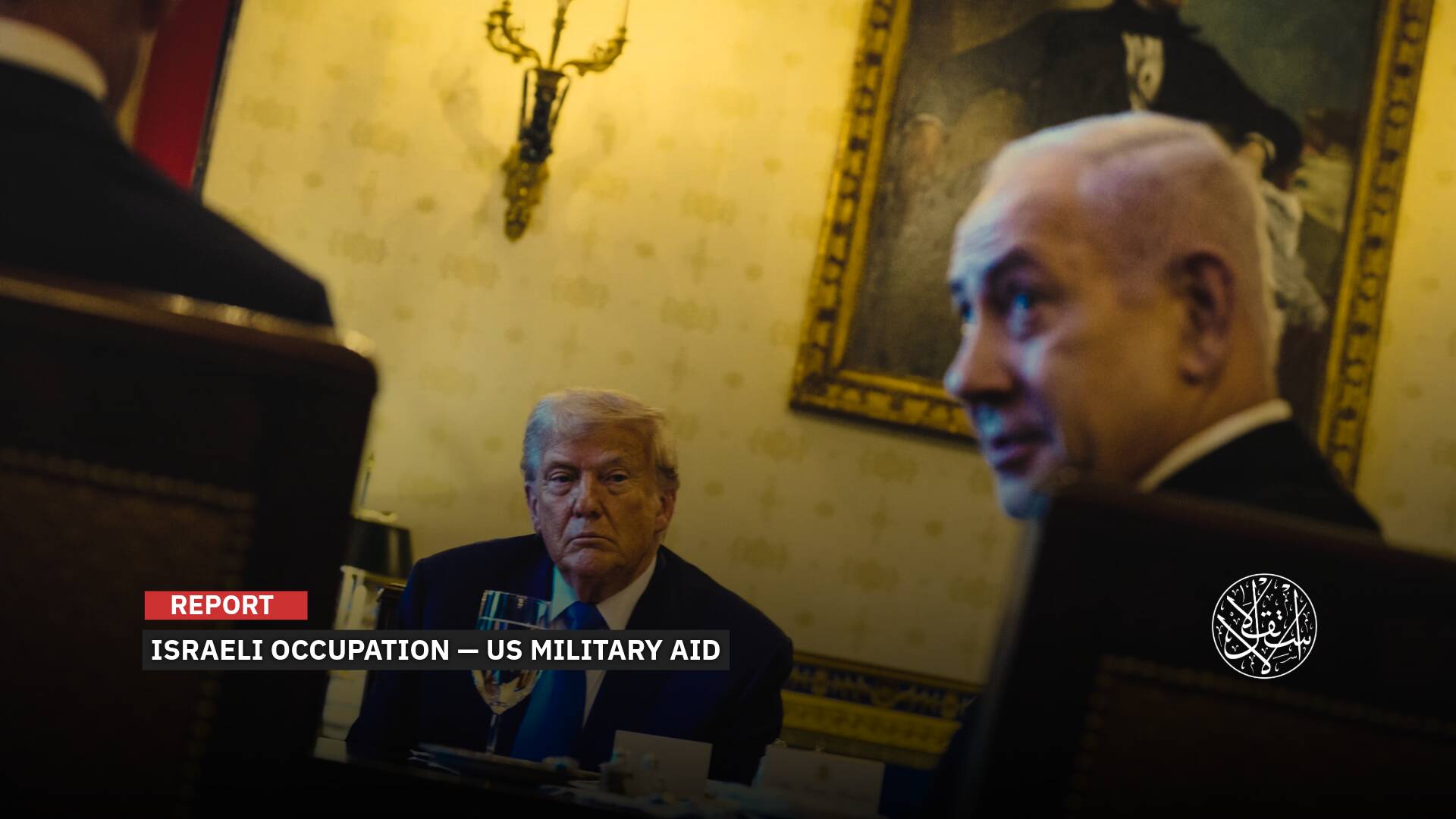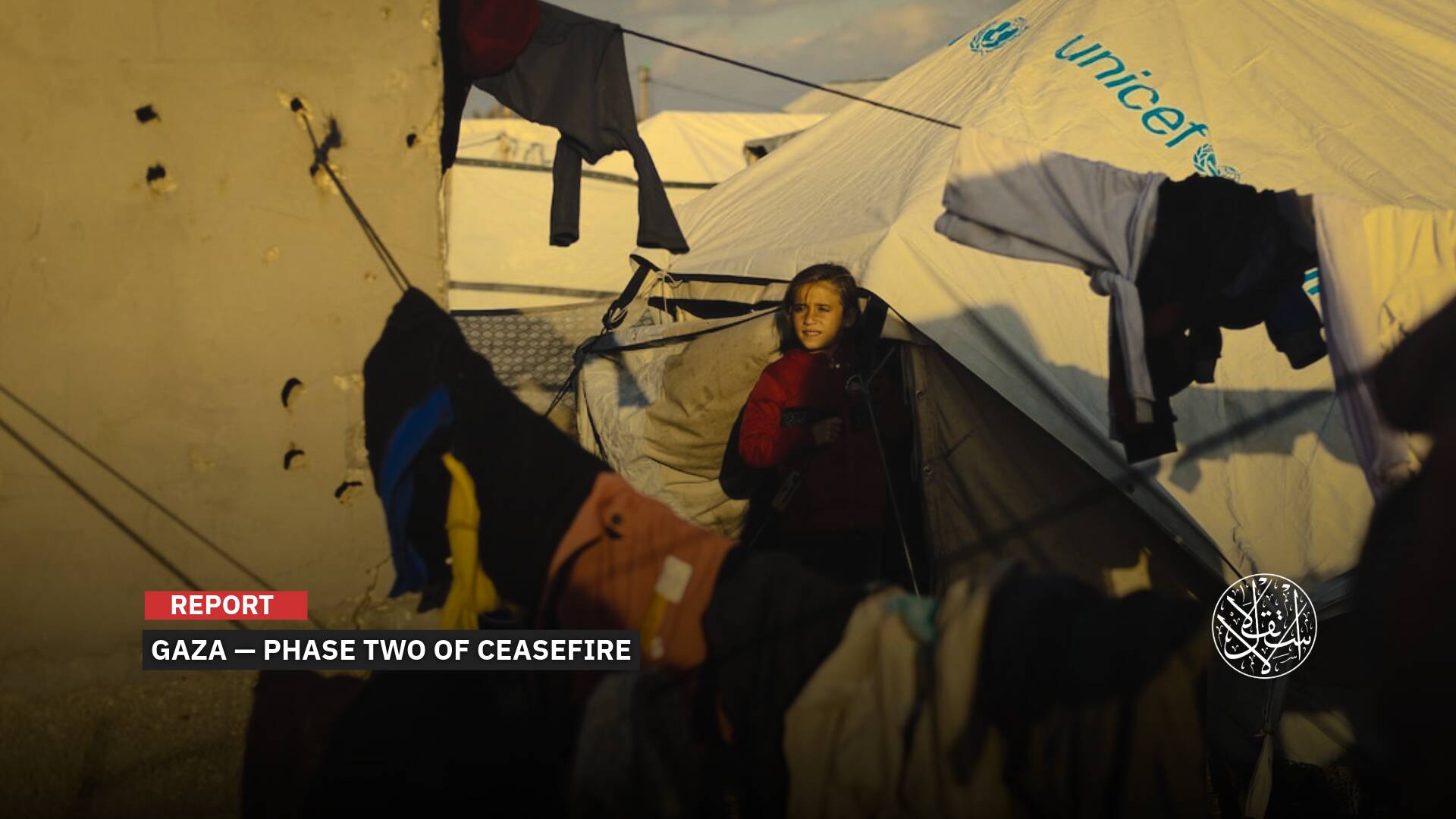What Are the Political, Economic Messages behind Syria’s Participation in Davos Forum?

“Syrian Foreign Minister’s attendance in Davos is part of a wider opening up by the West to Damascus.”
In a radical shift in Syrian policy on the international stage, the new Syrian administration has sent Foreign Minister Asaad al-Sheibani to represent it at the World Economic Forum meetings in Davos, Switzerland.
This participation, which al-Sheibani described as the first of its kind in the country’s history, is a symbolic and practical step towards breaking decades of isolation and reintegrating Syria into the international order.
This step comes within the framework of a clear effort to normalize relations with the international community and open the door to foreign aid and investments necessary to rebuild the economy destroyed by the war.
The ongoing war in Syria since 2011 has left great destruction, as reports from the World Bank and the United Nations reveal huge costs that may reach $400 billion to rebuild Syria.
In turn, Syrian Finance Minister Mohammad Abazid indicated in an earlier statement that the GDP had shrunk from $60 billion before 2010 to less than $6 billion in 2024.
Economic Partnerships
Syrian Foreign Minister Asaad al-Sheibani stressed in a dialogue with former British Prime Minister Tony Blair on the sidelines of the World Economic Forum in Davos on January 22 that removing the sanctions imposed on Damascus during the era of ousted President Bashar al-Assad is the key to the country’s stability.
He considered that the Syrian people should not be punished by measures that targeted the Assad regime, reiterating that the new Syria will not pose a threat to any country in the world.
“We inherited a collapsed state from the Assad regime, with no economic system, and debts reaching $30 billion to Iran and Russia, with an almost complete absence of foreign reserves in the central bank,” he said.
He stressed that “the new authorities will focus on five key sectors: energy, communications, roads and airports, education and health to provide basic services to the Syrian people.”
Before his appearance in Davos, the Financial Times quoted Mr. al-Sheibani as saying that the authorities had formed a committee to study Syria’s economic situation and infrastructure, and would focus on privatization efforts including oil, cotton and furniture factories.
He indicated that Damascus would study public-private partnerships to encourage investment in airports, railways and roads.
Syria’s participation in Davos comes as part of an effort to restore its economic position after more than a decade of war that left widespread destruction.
At the same time, the value of the Syrian currency has collapsed to record levels, and the central bank’s foreign exchange reserves are almost depleted.
However, the country faces huge challenges after the fall of the Assad regime, as a report by the New York Times indicates that removing international sanctions is the most important step to achieve tangible progress in reconstruction, especially since these sanctions hinder international trade and investment.
Economic Messages
Most of the world's governments are looking to Syria and what is happening in it, especially since it was almost completely isolated after the sanctions imposed on the former regime, which deepened with the beginning of the war in 2011.
The history of the new administration did not encourage much to lift the sanctions immediately, especially due to previous links of elements of this administration to the terrorist organization Al-Qaeda.
The new administration realizes this, so it has rushed, from the first moment it took power, to provide reassurances to regional and Western countries about the future of the country.
Economic assurances quickly emerged, most notably from the leader of the new administration, Ahmed al-Sharaa, who considered that the country needed a modern economic structure after living under a socialist mentality that imposed state dominance over economic sectors.
When asked whether his country would move towards a capitalist system, Mr. al-Sharaa said: “We need experts who know the country’s capabilities and try to benefit from all the world’s experiences, so that something can be brought about that is consistent with the nature of society.”
Less than a month after assuming power, the new administration appointed Maysaa Sabreen to be the first woman in the country’s history to lead the Central Bank of Syria, a move that has its implications in light of the circumstances that Syria has witnessed and is witnessing.
In addition, the country is studying the privatization of losing Syrian government companies, and is communicating with several international and regional parties in order to obtain support, according to statements by Syria's Finance Minister Mohammed Abazaid.
He also revealed that Syria is preparing to pass laws that encourage foreign investment to come to the country.
All these signs indicate that Syria is moving towards a free market economy, something that international donor institutions often demand as a condition for providing any support.
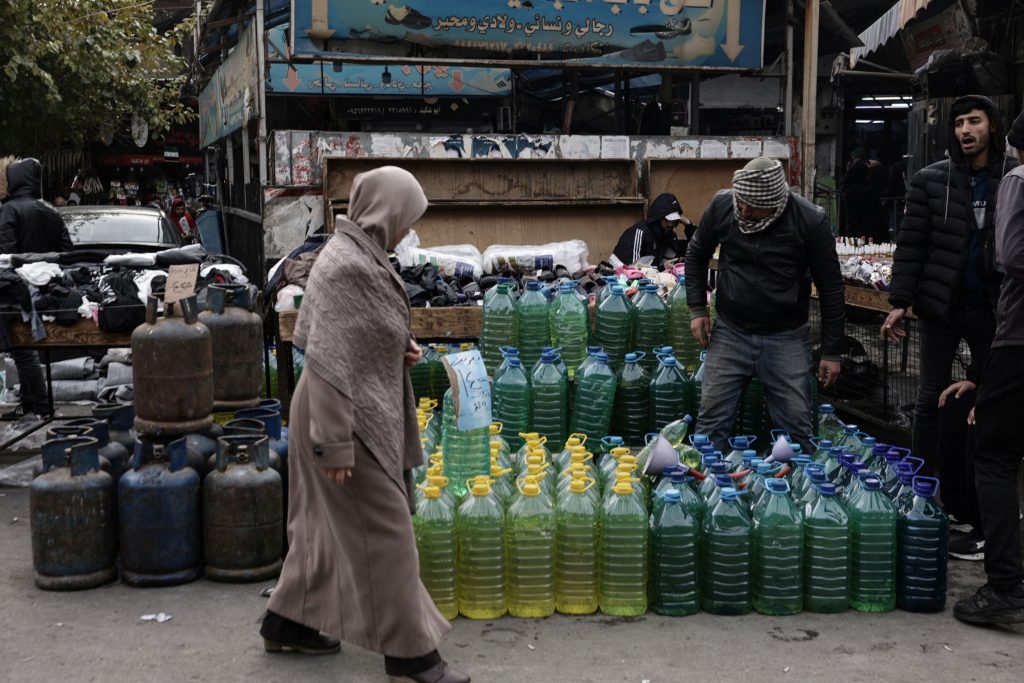
Political Messages
The reassuring messages were not limited to the economy. Perhaps the most prominent political message was the dispatch of a foreign minister to an economic forum attended by senior financial officials from around the world, instead of dispatching a finance or economy minister.
The new administration has also directed political reassurance messages to the international community, especially the United States, in recent days.
After Donald Trump's inauguration as US president, the new Syrian ruler published a congratulatory message in English from Mr. Al-Sharaa to Trump, expressing its hopes for improved relations between the two countries based on dialogue and understanding.
These messages come amid calls from Syrian officials to remove sanctions on the country after the fall of the former regime, which would open the door to the process of reconstruction and building the economy.
Although the sanctions have not been fully removed, the demands have paved the way for Western countries to make some adjustments.
On January 6, the US Treasury Department announced that some activities in Syria would be exempt from sanctions for the next six months to facilitate access to basic services. But officials said they were waiting to see progress before taking broader steps.
EU foreign policy chief Kaya Kallas said earlier this month that the bloc could gradually ease sanctions if the new authorities made tangible progress, including forming an inclusive government, protecting minorities, and moving away from Iranian and Russian influence.
EU foreign ministers are expected to consider easing some sanctions on Syria at a meeting in Brussels on January 27.

Cautious Optimism
The World Economic Forum will give the new administration space to emphasize its economic and political vision for the country, and increase its exposure to the Arab and regional worlds.
Mr. al-Shibani emphasized these messages during an Arab and regional tour that he began immediately after assuming his duties, where he visited Saudi Arabia, Qatar, the UAE, Jordan, and Turkiye, before the launch of the World Economic Forum.
The Syrian messages, especially those related to removing sanctions, received clear Arab support during the forum, although cautious optimism was the most prominent feature that dominated the statements.
Saudi Foreign Minister Prince Faisal bin Farhan said the Syrian new administration is open to working with the international community to move in the right direction, and has a great desire and decisive intention to cooperate and deal with it in a responsive manner.
However, he warned that he has cautious optimism regarding Syria, despite the great opportunity to move in a positive direction, calling on the international community to remove sanctions and help the country in the transitional phase.
Qatar was not far from this thinking either, as Prime Minister Sheikh Mohammed bin Abdulrahman Al Thani considered that cautious optimism should be exercised.
He added that the new administration that has assumed responsibility needs help in order to stabilize the situation in the country.
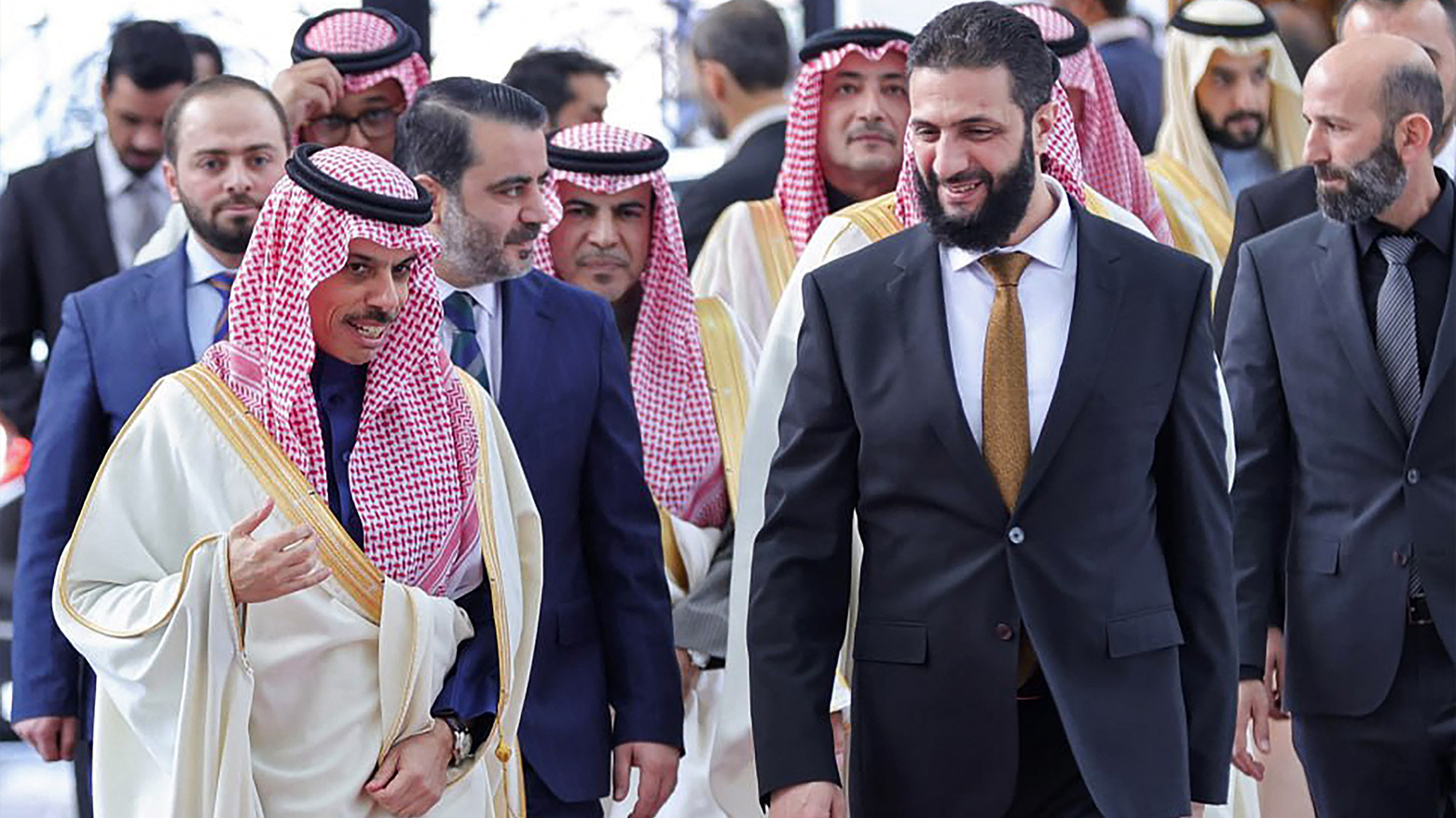
On his part, economic expert Mohamed al-Mousa explained in a statement to Al-Estiklal that “Syria's participation in Davos is a rare opportunity to prove its seriousness in achieving economic and political reform, and opening up to the world.”
He also pointed out that “participation is also evidence of the existence of a quasi-international recognition of the current Syrian administration.”
Regarding the economic impact, Mr. al-Mousa considered that “the results will be subsequent and not direct.”
He also stressed that “the success of this step depends on the ability of the new leadership during the coming period to present realistic plans that meet the aspirations of the Syrian people, and open the way for international investments that contribute to rebuilding the country.”




